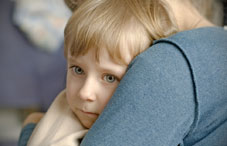.
 Child abuse, in any form, Child abuse, in any form,
is an ugly thing
|
|
SPECIAL to NAASCA
Child abuse, in any form, is an ugly thing
March 26, 2015
by Arkady Bukh, Esq - www.nyccriminallawyer.com
Child abuse, in any form, is an ugly thing. While ill-treatment of children is turning into a topic that more people talk about openly, it is still underreported to authorities. Another aspect which, until recently, has not received a great deal of attention is what happens to these children when they become adults. |
Do they continue the pattern of abuse? What increased risks, if any, or adult survivors of childhood abuse, face?
Several studies have started putting the focus on these questions — and more.
Types of Abuse
Child abuse is any behavior by parents, guardians or older siblings that runs outside of the normal conduct and includes an increased risk of physical or emotional harm. The behaviors may be intentional or unintentional. Child abuse can be caused by omission and commission.
Emotional Child Abuse
Emotional abuse can be as damaging to a child 's mental health and social development as physical abuse . Some examples:
• Belittling and humiliating a child
• Name calling
• Challenging a child 's worth
• Frequent yelling
• Ignoring a child as a form of punishment
• Limited physical contact — no hugs or kisses
Physical Child Abuse
Physical abuse involves physical harm and/or injury to the child. Often, but not always, physical abuse is the result of an intentional act meant to hurt the child, but not always. Physical exploitation can also take the form of severe “discipline,” such as by means of a belt on a child or corporeal punishment that is not appropriate to the age of the child.
Only Violence is Abuse
Corporeal abuse is just one form of child abuse in a range of abuses. Emotional abuse and neglect can be just as harmful and are less like to trigger an intervention.
Only Bad Parents Abuse Their Children
It is easy to say that only bad parents are abusive towards their children. Not all abusers intentionally harm their kids and many have been victims themselves. Many otherwise “ good parents” may also suffer from mental health issues or substance abuse issues.
A Good Family Won 't Have Child Abuse
Child abuse is found in all economic and cultural layers. Often, families who appear to have it all together are entirely different when it comes to their time behind closed doors.
Child Abuse is Perpetrated by Strangers
Strange abuse does happen, but typically abusers are either family members or someone close to the family.
Abused Children Grow Up to be Abusers
While it is true that numerous abused kids grow up and repeat the pattern of abuse, it 's just as true that many adults, who were abused as children, take a different path and work to prevent child abuse.
Consequences
The consequences of experiencing abuse in childhood vary among adults. For some, the effects of abuse are chronic while others have less negative outcomes. Frequency and duration of mistreatment are two factors that can influence the way childhood abuse impacts him or her later in life.
Transmission of Abuse and Neglect
While many survivors of child abuse don 't go on to mistreat their children, there is evidence suggesting that adults who were abused as a child are at an increased risk of abusing their children. In one study, an estimated one-third of children who are subjected to child abuse go on to replicate patterns of abusive parenting towards their children.
Health Problems
Adults with a history of domestic violence and child abuse in their past are more likely that the average population to experience healthy problems such as diabetes gastrointestinal problems, arthritis, stroke and heart disease. In one study, Sachs-Ericsson found that adult survivors of childhood abuse had more medical problems than non-abused adults.
Mental Health Problems
In an ongoing study in America, Widom, DuMont and Czaja found children who were physically abused were at increased risk of a depressive disorder in early adulthood. The complications included attention deficit hyperactivity disorder, PTSD, bipolar disorder, drug abuse and generalized anxiety disorder.
Suicidal Behavior
Studies such as Felitti 's Adverse Childhood Experiences in 1998 found that adults who experienced four or more abusive episodes in childhood were twelve times more likely to attempt suicide that those who experienced no child abuse in childhood.
Homelessness
A study by Herman, Susser, Struening and Link in 1997 found that either physical or sexual abuse during childhood was prevalent in the homeless population. Adults who experienced a combination of neglect and either physical or sexual abuse were 26 times more likely to become homeless than people with no similar experiences of abuse.
~~~
Arkady Bukh is a criminal defense attorney based out in New York City, an active advocate of abused children rights, and a friend of NAASCA. You may wish to get in touch with him at Bukh Law Firm P.C., 14 Wall St, New York NY 10005, (212) 729-1632, or through his website.
|